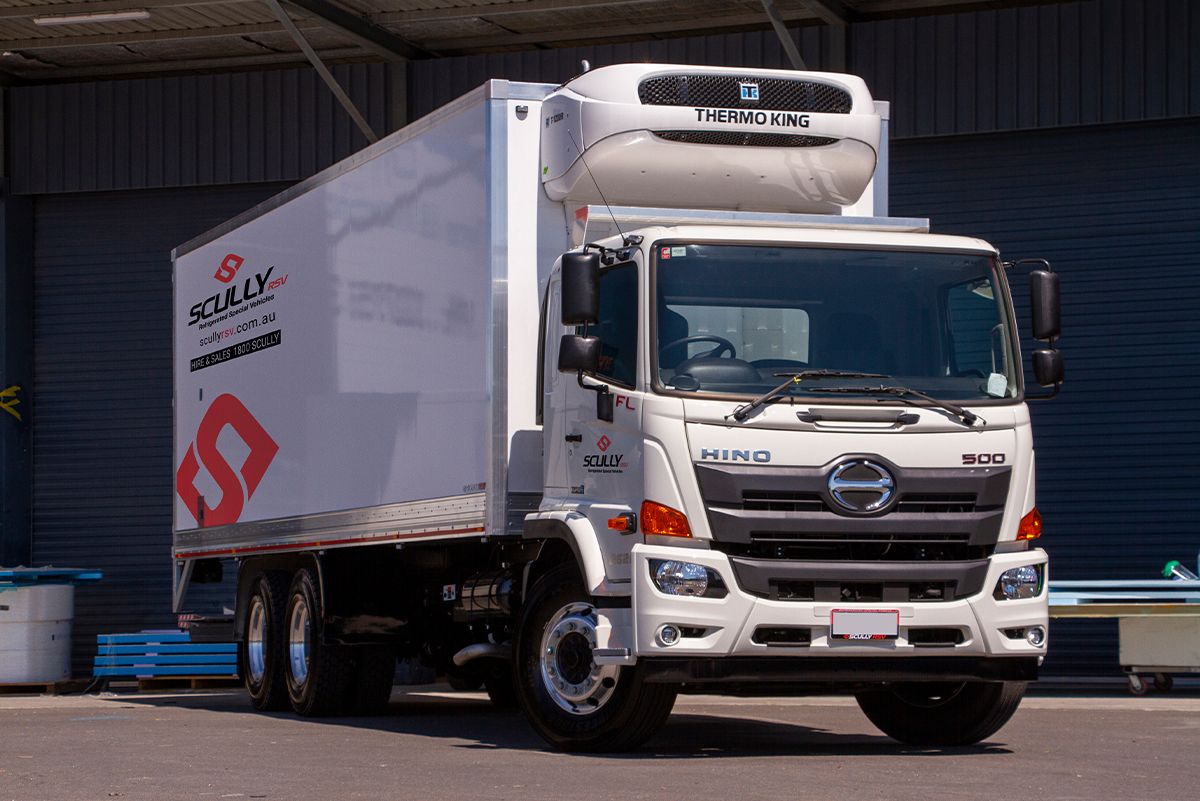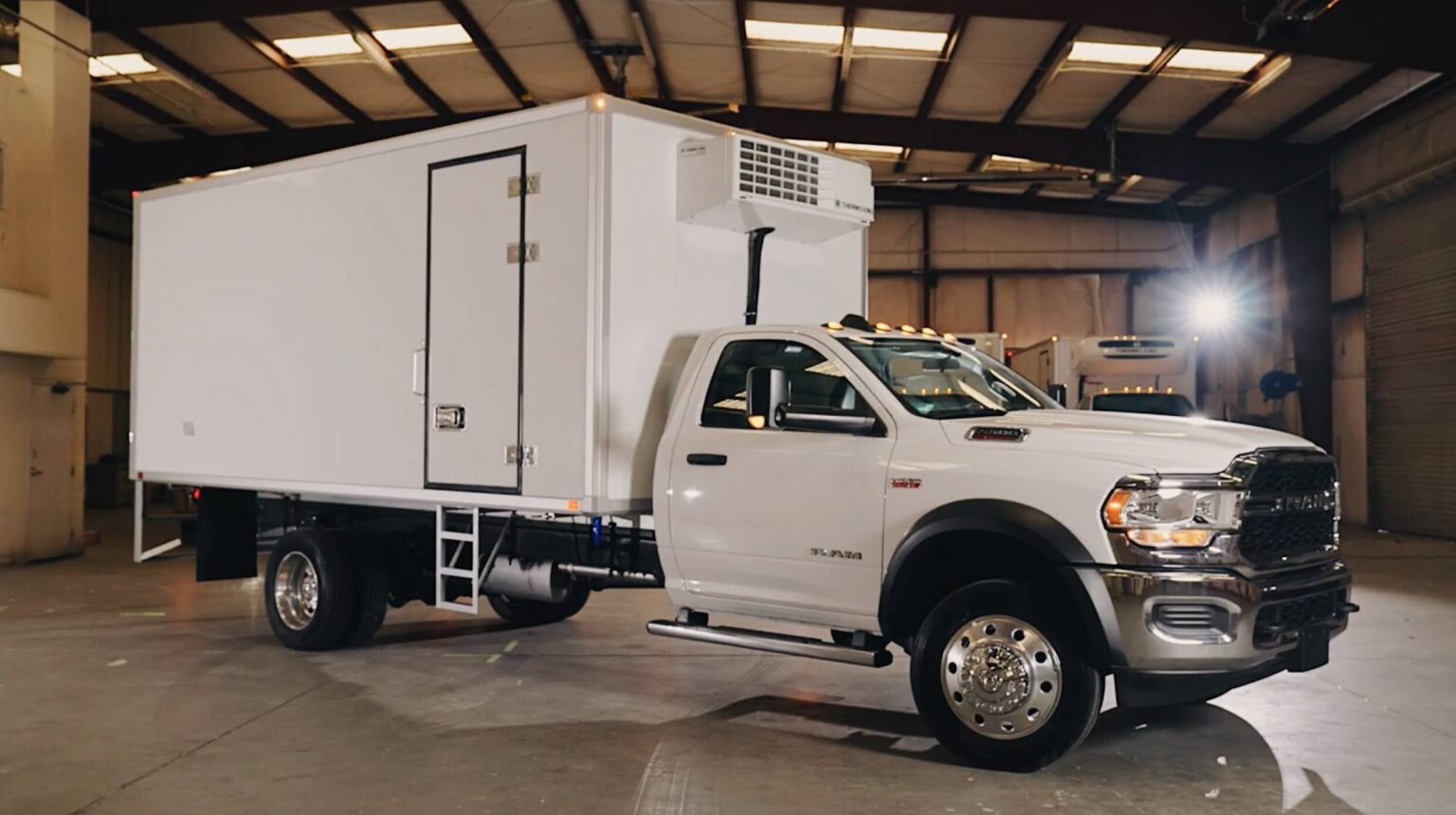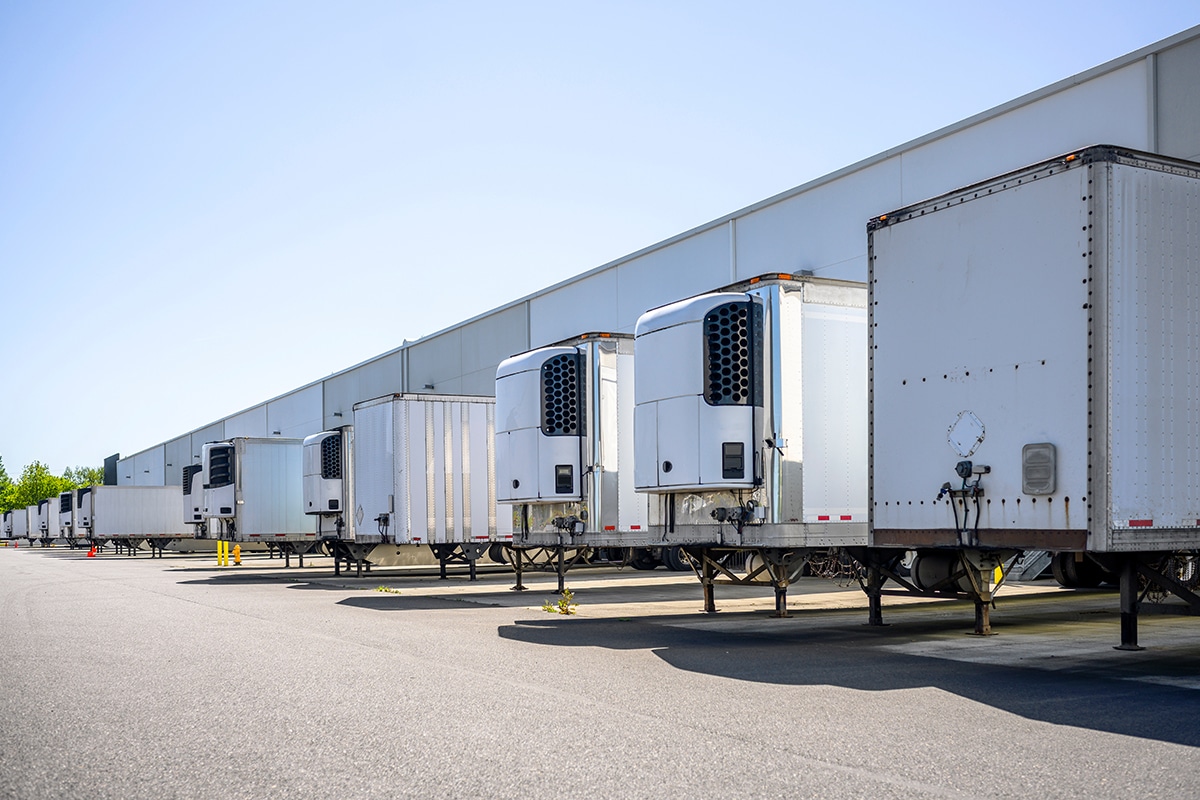Reefer Trucks Thermo King: Trusted for Temperature-Sensitive Product
Wiki Article
Leading Technologies in Transportation Refrigeration: Enhancing Effectiveness and Security
The landscape of transport refrigeration is undergoing substantial improvement, driven by innovations aimed at boosting both efficiency and safety and security. As these technologies proceed to evolve, it is crucial to explore their effects on operational practices and governing compliance, prompting a better exam of how they improve the future of transport refrigeration.Smart Temperature Level Keeping An Eye On Equipments
In the realm of transport refrigeration, smart temperature tracking systems have become a crucial development for guaranteeing the honesty of temperature-sensitive products. These innovative systems leverage Internet of Things (IoT) technology to supply real-time information on temperature level variations, making it possible for drivers to maintain optimal conditions throughout the supply chain. By constantly tracking the temperature level of refrigerated containers and cars, companies can swiftly identify inconsistencies that may jeopardize item quality.
Moreover, smart tracking systems frequently include automated notifies and alerts, allowing stakeholders to react quickly to any kind of prospective issues. This aggressive method not just reduces the risk of perishing however also boosts compliance with governing standards controling food safety and pharmaceutical transportation.
The combination of information analytics within these systems additionally helps with predictive upkeep, assisting drivers to foresee prospective tools failures prior to they happen. This capacity lowers downtime and maximizes operational efficiency, eventually resulting in cost financial savings.
Eco-Friendly Refrigerants
Smart temperature level tracking systems play an essential duty in keeping item high quality, yet the performance of transportation refrigeration additionally pivots on the selection of refrigerants used. As environmental issues climb, the change in the direction of environment-friendly refrigerants has become vital. Traditional refrigerants, such as hydrofluorocarbons (HFCs), are infamous for their high Worldwide Warming Possible (GWP), contributing dramatically to climate adjustment. In contrast, arising alternatives like hydrocarbon-based cooling agents and hydrofluoroolefins (HFOs) present reduced GWP choices, providing both efficiency and sustainability.
These environment-friendly refrigerants not only decrease environmental impact however additionally straighten with global laws aimed at phasing out dangerous substances. Their adoption can lead to improved energy performance, ultimately decreasing operating expense for transport refrigeration systems. Additionally, making use of natural cooling agents, such as ammonia and co2, has obtained traction as a result of their exceptional thermodynamic residential properties and reduced environmental impact.
Buying green refrigerants is not merely a regulative compliance step; it stands for a critical decision that boosts brand credibility and fosters customer commitment. reefer trucks thermo king. By focusing on sustainable practices, firms can add to a greener future while making certain the honesty of moved items
Advanced Insulation Products
Using advanced insulation products is vital for enhancing transportation refrigeration systems, as they significantly boost power effectiveness and keep consistent temperature control. Conventional insulation methods typically drop brief in stopping thermal transfer, resulting in raised energy intake and changing temperatures within chilled compartments.Emerging materials such as vacuum cleaner protected panels (VIPs) and aerogels supply premium thermal resistance, enabling thinner profiles without endangering performance. VIPs, for example, utilize a vacuum cleaner layer to lessen convective and conductive warmth transfer, making them perfect for space-constrained applications. Aerogels, known for their light-weight and porous framework, offer extraordinary insulation while substantially decreasing Web Site total system weight.
Additionally, incorporating stage adjustment materials (PCMs) into insulation systems can better support temperature levels throughout transportation. These materials absorb and release thermal energy, successfully buffering versus exterior temperature variations.
The combination of these sophisticated insulation materials not only lowers the functional prices linked with energy consumption however also extends the service life of temperature-sensitive goods. As the transport refrigeration industry remains to advance, the fostering of cutting-edge insulation technologies will certainly be crucial in enhancing both efficiency and safety in refrigerated transport.
Automated Course Optimization
The performance of transportation refrigeration systems is greatly enhanced through automated route optimization, which leverages innovative formulas and real-time information to determine one of the most reliable courses for shipment. By examining numerous factors such as traffic patterns, weather conditions, and distribution home windows, these systems can significantly lower traveling time and gas usage.Automated path optimization lessens human mistake and subjective decision-making, which can bring about inefficiencies. This technology makes it possible for fleet supervisors to allot sources more effectively, making certain that chilled items maintain their required temperature level throughout the trip. By maximizing courses, firms can also improve client fulfillment through prompt deliveries.
Additionally, automated systems can adjust to unexpected conditions, such as road closures or abrupt traffic spikes, permitting vibrant rerouting. This flexibility not only secures This Site the integrity of temperature-sensitive products however also adds to overall operational efficiency.
Carrying out automated route optimization can cause substantial cost savings while lowering the carbon impact linked with transport. As businesses progressively focus on sustainability, this development attracts attention as a critical element in modern-day transport refrigeration, aligning functional goals with ecological responsibility. Eventually, automated course optimization stands for a considerable innovation in the quest for effectiveness and safety in transport refrigeration.

Real-Time Data Analytics
Automated course optimization dramatically take advantage of the assimilation of real-time information analytics, which gives essential understandings right into the performance of transportation refrigeration systems. By making use of real-time data, transport drivers can monitor temperature level changes and tools performance, ensuring that perishable items are preserved within required criteria throughout transportation. This positive method not only boosts the top quality of the moved items however also minimizes the danger of spoilage and loss.
Along with enhancing efficiency, real-time analytics boosts safety by ensuring conformity with regulative standards for temperature level control. This not just safeguards public health but also fortifies a company's credibility - refrigerated transportation thermo king. As the transport refrigeration sector progresses, the integration of real-time data analytics arises as a foundation for driving development, sustainability, and operational quality
Final Thought
In conclusion, the improvements in transportation refrigeration substantially boost both effectiveness and safety and security within the industry. Collectively, these technologies represent a critical advancement in transport refrigeration, making certain conformity with governing standards and advertising a greener future.The landscape of transport refrigeration is undertaking substantial makeover, driven by developments aimed at boosting both efficiency and safety.Smart temperature level surveillance systems play a vital function in keeping item quality, however the efficiency of transportation refrigeration also pivots on the choice of cooling agents utilized. Their fostering can lead to enhanced energy effectiveness, ultimately lowering operating costs for transport refrigeration systems. Inevitably, automated route optimization stands for a considerable advancement in the pursuit for performance and safety in transportation refrigeration.
In verdict, the improvements in transport refrigeration considerably enhance both performance and security within the industry.
Report this wiki page